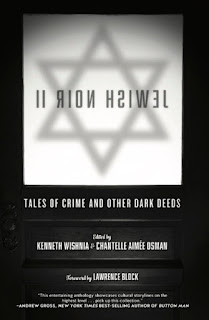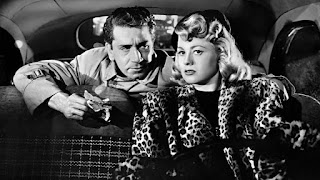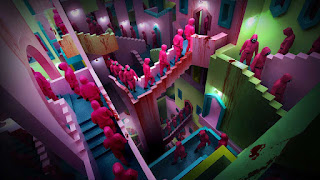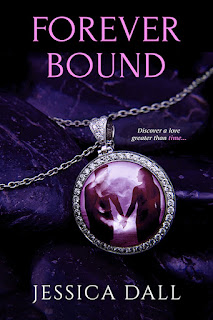A week before the mystery community headed to Minneapolis for Bouchercon, I, contrarian that I am, went to Chicago for Chicon 8. That was the 80th World Science Fiction Conference. As I have written before, science fiction fandom is our field's bigger and older sibling. Chicon went for five days, had about 3,400 attendees, and had 1,404 events listed. Impressive as all heck.
First thing to say is, they took covid VERY seriously. Everyone had to have proof of vaccination and had to stay masked. The photo above shows me wearing my volunteer vest, walking around looking for trouble (literally), which included reminding people to wear their masks. (I encountered three people who needed the hint, and all complied without argument.) In spite of this, the Con management informed us that 60 attendees reported to them testing positive within five days of the convention. That's about 1.8%. Does anyone know the number for Bouchercon?
Let me tell you about some highlights of a few panels I attended.
Best Science Fiction / Fantasy Murder Mysteries. I added a few titles to my Must Read list. (See the covers of some of these titles on this page.)
Roberta Rogow made an interesting argument: It is easier to write genre-crossover novels these days because, unlike brick-and-mortar bookstores, online stores are happy to place a volume in as many places as it belongs.
Someone on the panel quoted Walter Mosley as saying mystery is simile and science fiction is metaphor. That requires some contemplation, I think.
At the end of the panel Mark Painter said he had been trying to remember the earliest example of an SF mystery he had seen in a visual media. He decided it was "The Conscience of the King" from the first season of Star Trek.
Someone replied: "What about the one where Scotty was accused of murder?"
"'Wolf in the Fold," said Painter. "And the one with Elijah Cook, Jr."
"'Court-Martial,'" I called from the audience. And added: "How do we remember this crap?"
Fortunately everyone laughed. And speaking of Star Trek...
Remembering Nichelle Nichols. The actress who played Lieutenant Uhura in the original series died last month and fans met up to say how much she meant to so many people. (Whoopi Goldberg at age five: "Mommy, there's a Black woman on TV and she's not a maid!")
David Gerrold, who started his career at age nineteen by sending an unagented script to Star Trek ("The Trouble With Tribbles") was friends with Nichols for half a century and said she "moved in a bubble of charisma."
I highly recommend the documentary, Woman In Motion, which tells how NASA recruited Nichols to encourage women and people of color to apply for the space program. Amazing story.
The Origin and Evolution of Conspiracy Theories. Kenneth Hite says the oldest example of conspiracy theory in the West was the Roman hunt for followers of Bacchus, 2d century BC. This same pattern was later used for persecuting the Christians, who copied it for attacking the Jews. He also says forget about QAnon; the highwater mark of conspiracy theories in the United States was the Anti-Masonic Party, which ran candidates for president.
Time Travel. The legendary Joe Haldeman, born in 1943, explained "I am from the past."
What happened After My Story Got Optioned. John Scalzi reports that a producer once tried to option one of his books to prevent other companies from making it and competing with the producer's film based on another book. Another of his books has been optioned continually for fourteen years. "It paid for my daughter's college education."
Meg Elison had her book optioned by a screenwriter who only heard of it because one word in the title matched the title of a TV the writer had been streaming, so Amazon suggested it.
The Middle Ages Weren't Bad. Several historians argued that the so-called dark ages get a bum rap. Ada Palmer, who studies the Renaissance said: "My period was mean to your period and I'm sorry." She said there is a lot more Renaissance art than Medieval art because we destroyed so much of the latter. During World War II the allied pilots were forbidden to bomb Florence, to protect all that pretty stuff, but cities with older art were fair game.
When did the Early Modern period begin? Palmer says there is a disagreement of 400 years depending on which field you ask, because they all want to claim their favorite work as modern, not part of that tacky ol' medieval stuff.
David M. Perry said medieval people loved democracy. They formed groups, created complicated by-laws, and voted on stuff. They just weren't allowed to run their governments that way.
Palmer recommends historical fiction about Europe written by Asian authors, who look at things quite differently than us.
Morally Ambiguous Characters. James Patrick Kelly invoked our field for this one, saying his favorite morally ambiguous hero is Sam Spade.
David Gerrold said the morally ambiguous character does the right thing for the situation, although in another situation he would be horrified by it.
And just for giggles, here are the names of some panels I did not attend:
* More than Sexbots and Slaves
* If It's Not Love, Then It's The Bomb That Will Bring Us Together
* I'm Trapped Here For An Hour! Ask Wes Anything!
* Why is the U.S. Banning and Challenging So Many Books?
* Werewolf Torts and Undead Tax Liabilities
* Abolition and Our Future: Imagining a World Without Police
* Let's Talk About Consent, Baby
Next time I will offer some of my favorite quotes from the Con. Until then: Keep watching the skies!




































